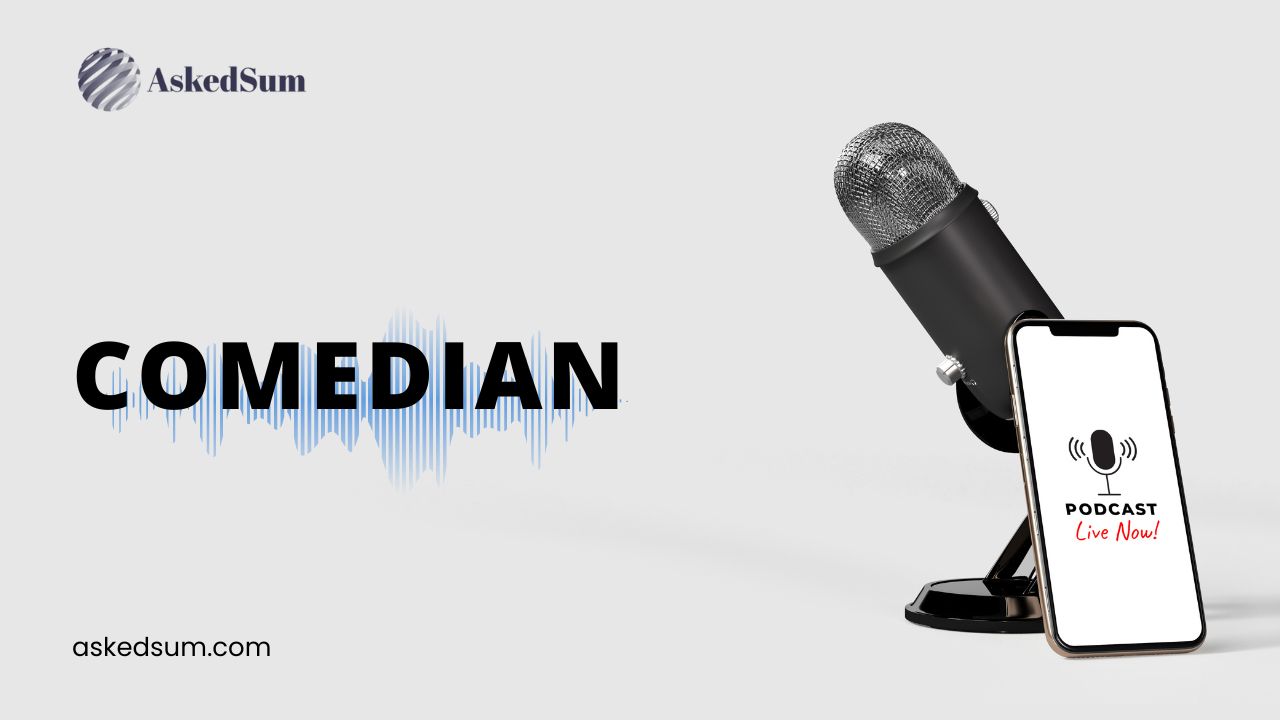Table of Contents
Embarking on a journey to become a comedian is not merely about choosing a career path; it’s about embracing a life that revolves around bringing joy, laughter, and reflection to the world through the art of humor. The decision to step into the world of comedy is a profound one, rooted in the desire to connect with people on a level that transcends the ordinary, using laughter as a universal language. This blog post is designed for those standing at the crossroads, contemplating a dive into the vibrant realm of stand-up comedy, improv, comedy writing, and beyond.
Deep Dive into Why Do You Want to be a Delta Sigma Theta?
Why do you want to be a comedian? This question is as complex as it is simple, reflecting a multitude of motivations ranging from a passion for creative expression and storytelling to the joy of making people laugh and the allure of an entertainment career. Comedy, in its essence, is a mirror to society, offering satirical commentary, humorous perspectives, and a unique form of public speaking that challenges norms while entertaining. As we delve into the reasons, interview preparations, and the essence of comedy, this post aims to guide, inspire, and prepare you for a journey into making the world a brighter place, one laugh at a time.
Importance of the Title
The title “Why do you want to be a Comedian?” strikes at the heart of a potential comedian’s motivation and purpose. It encourages introspection and personal reflection, crucial for anyone considering a profession that demands resilience, creativity, and a profound understanding of human nature. This inquiry is not just about uncovering a desire to entertain but exploring the depths of one’s passion for storytelling, satire, and the ability to evoke emotion through laughter. It’s about recognizing comedy as not just an art form but as a vessel for connection, reflection, and societal commentary.
Interview Questions and Sample Answers
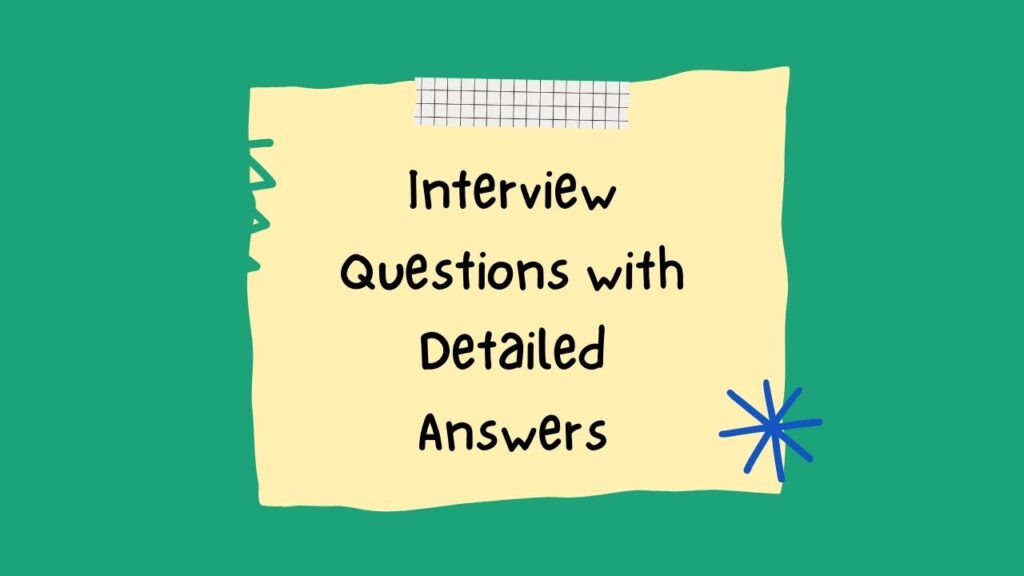
1. Why do you want to become a comedian?
Sample Answer: My passion for making people laugh and bringing joy to their lives has always been my driving force. From a young age, I found solace and connection through humor, using it as a tool to navigate life’s complexities. Comedy, to me, is not just entertainment; it’s a way of looking at the world, finding humor in the mundane, and using laughter as a bridge between diverse groups of people. My aspiration to become a comedian stems from this deep-seated belief in the power of laughter to heal, connect, and inspire.
2. How do you handle hecklers or a tough audience?
Sample Answer: Handling hecklers and tough audiences is an art form in itself, one that requires quick wit, resilience, and a positive mindset. I believe in turning potentially disruptive situations into moments of engagement and humor. For example, during a show at a local comedy club, I encountered a heckler who continuously interrupted my set. Instead of getting frustrated, I incorporated their remarks into my performance, creating a dialogue that entertained the audience and diffused the tension. This experience taught me the importance of adaptability and the power of humor to transform challenging situations into opportunities for connection.
3. What inspires your comedy material?
Sample Answer: My comedy material is inspired by everyday life, personal experiences, and the absurdities of the human condition. I draw from a variety of sources, including my own life, current events, and social observations, weaving them into stories that resonate with audiences on a personal level. For instance, a routine about the trials of remote work during the pandemic, based on my own experiences, struck a chord with many, highlighting the shared challenges and humorous moments we all faced. This approach allows me to create comedy that is relatable, reflective, and grounded in reality.
4. How do you stay updated with current events and trends for your comedy?
Sample Answer: Staying informed is crucial for a comedian, as it allows us to connect with our audience through timely and relevant material. I make it a point to consume a wide range of media, from news outlets to social media platforms, ensuring I have a pulse on current events, cultural trends, and societal shifts. This not only informs my comedy but also helps me maintain a fresh and dynamic approach to my material, allowing me to comment on the world as it evolves.
5. What role do you think comedy plays in society?
Sample Answer: Comedy plays a pivotal role in society, serving as a form of social commentary, a catalyst for change, and a universal language of connection. Through humor, comedians have the unique ability to address complex issues, challenge societal norms, and provide a lens through which we can reflect on our behaviors, beliefs, and the world at large. For example, satirical comedy has long been used to critique political and social issues, sparking discussion and sometimes even influencing public opinion. Comedy, therefore, is not just about entertainment; it’s a powerful tool for reflection, education, and change.
6. How do you develop a new comedy routine?
Sample Answer: Developing a new comedy routine is a process of exploration, experimentation, and refinement. It begins with an idea or observation that sparks my interest, which I then expand into a series of jokes or anecdotes. This initial phase is followed by testing the material in front of live audiences, noting their reactions, and making adjustments accordingly. For instance, when developing a routine about online dating, I started with my own experiences, expanded them with broader observations, and refined the set through multiple performances, each time tweaking the delivery based on audience feedback. This iterative process is essential for creating comedy that resonates and connects.
7. Describe a time when a performance didn’t go as planned and how you handled it.
Sample Answer: Every comedian faces performances that don’t go as planned, and these moments are crucial for growth and learning. An unforgettable instance for me was a set during a comedy festival where technical difficulties led to my microphone cutting out intermittently. Initially, it threw me off, but I quickly adapted by projecting my voice and using the situation as part of my act, joking about the challenges of live performances. This experience taught me the importance of resilience, the ability to improvise, and the power of humor to turn unexpected situations into memorable parts of a performance.
8. How do you balance humor with sensitivity, especially on controversial topics?
Sample Answer: Balancing humor with sensitivity is a delicate art, particularly when addressing controversial topics. My approach is to always come from a place of respect and understanding, ensuring that my comedy punches up, not down. For example, when crafting jokes about sensitive subjects, I focus on the absurdities of situations or behaviors, rather than targeting individuals or groups. This approach allows me to engage with challenging topics in a way that is thoughtful, inclusive, and ultimately humorous, without alienating or offending my audience.
9. How has your comedic style evolved over time?
Sample Answer: My comedic style has evolved significantly over time, shaped by experiences, audience feedback, and my own personal growth. When I first started, my comedy was more observational, focusing on everyday quirks and oddities. However, as I’ve matured, my material has become more nuanced, blending storytelling, satire, and a deeper exploration of themes like human connection, societal norms, and personal identity. This evolution reflects not only my journey as a comedian but also my desire to create comedy that resonates on a deeper level, offering both laughter and insight.
10. What advice would you give to aspiring comedians?
Sample Answer: For aspiring comedians, my advice is to be persistent, authentic, and open to learning. Comedy is a journey filled with ups and downs, and success comes from resilience, dedication, and the courage to be true to your voice. It’s also crucial to continuously hone your craft, seek feedback, and embrace every opportunity to perform. Remember, every great comedian started somewhere, and the key is to keep pushing boundaries, experimenting with your material, and finding joy in the process of making others laugh.
Thoughtful Interview Questions

Deep Dive into Why Do You Want to be a Police Officer? 10+Best Answers with Essay –
- How do you find humor in everyday life?
- What impact do you hope to have on your audience with your comedy?
- How do you navigate the balance between personal storytelling and universal appeal in your material?
- What challenges have you faced in developing your comedic voice?
- How do you incorporate feedback from your audience into your performances?
- In what ways has comedy served as a form of therapy for you or your audience?
- How do you see the role of comedy evolving in the digital age?
- What does success look like to you in the world of comedy?
- How do you maintain your passion and motivation in a competitive field?
- How do you deal with the fear of failure or rejection in comedy?
- What role does improvisation play in your comedy?
- How do you stay authentic while appealing to a broad audience?
- How has your background or upbringing influenced your comedy?
- In what ways do you think comedy can contribute to societal change?
- How do you keep your material fresh and engaging over time?
Deep Interview Questions
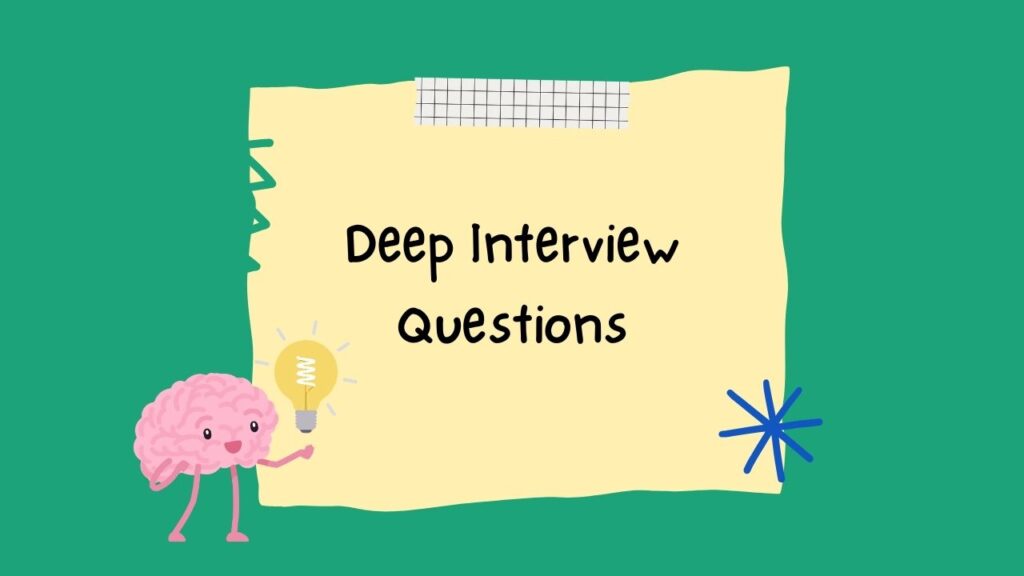
Deep Dive into 43+ Podcast Questions to ask Music Producers
- How does comedy provide a platform for discussing serious issues?
- In what ways do you think humor contributes to mental health and wellbeing?
- How do you approach the ethical considerations of comedy, especially regarding sensitive topics?
- Can you discuss a time when comedy helped you or someone else through a difficult period?
- How do you balance the need for comedic effect with the responsibility of not perpetuating stereotypes or harm?
- What insights have you gained about human nature through your work in comedy?
- How do you see comedy as a reflection of cultural and societal norms?
- What challenges do you face in keeping your comedy relevant and impactful?
- How do you navigate the line between satire and disrespect in your comedy?
- What role does comedy play in fostering community and connection?
- How has the perception of comedy as a profession changed over the years?
- What advice would you give to someone using humor to cope with personal challenges?
- How do you think comedy will evolve in response to global events and shifts in societal attitudes?
- What role does diversity play in the comedy industry, and how do you contribute to it?
- Can comedy be a force for unity in times of division and conflict?
Funny Interview Questions
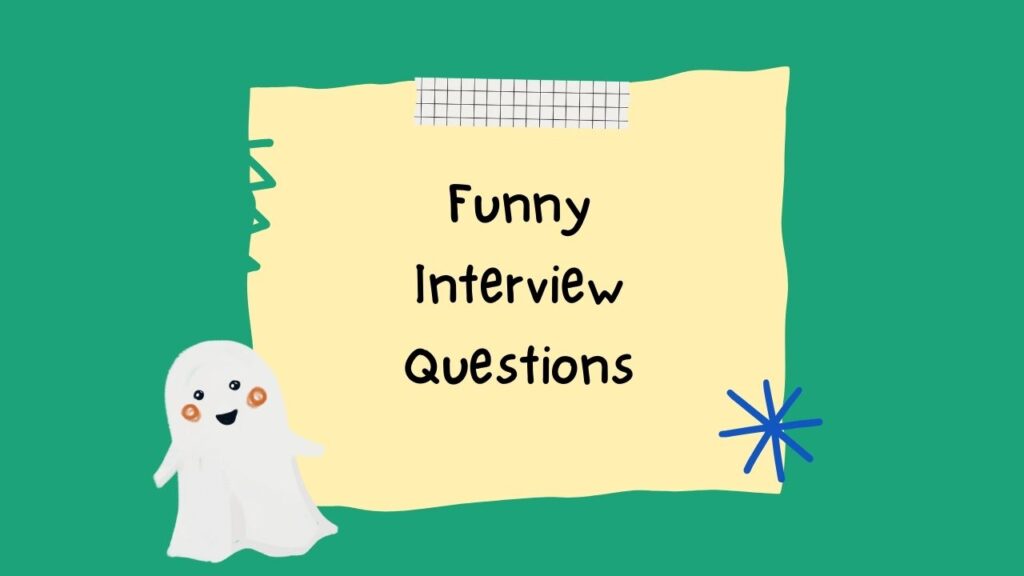
Deep Dive into 29+ Podcast Questions About Musicians
- Have you ever laughed at your own joke on stage before delivering the punchline?
- If you could perform a comedy show in any historical period, when would it be and why?
- What’s the funniest misunderstanding that occurred because of your comedy?
- If animals could be your audience, which species do you think would appreciate your humor the most?
- Can you share a joke that you thought was hilarious but completely flopped with your audience?
- Have you ever used your comedic skills to get out of a troublesome situation?
- What’s the weirdest place you’ve ever been recognized as a comedian?
- If you could roast any historical figure, who would it be and why?
- What comedy sketch would you perform if the world was ending tomorrow?
- Have you ever accidentally made someone laugh when you were trying to be serious?
- What’s the most bizarre prop you’ve ever used in your comedy routine?
- If you could have a superpower that would enhance your comedy, what would it be?
- Can you describe your first stand-up experience in three words?
- What’s the oddest feedback you’ve ever received after a show?
- If your comedy style was a dish, what would it be and why?
Meaningful Interview Questions
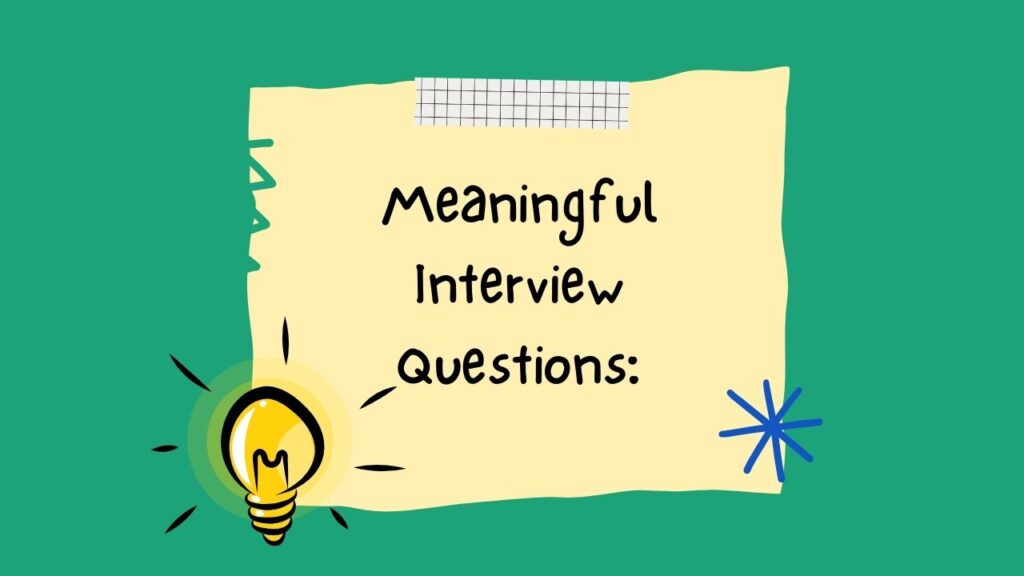
- How does comedy create a space for vulnerability and authenticity?
- In what ways can comedy serve as a cultural critique or social commentary?
- How do you use your platform as a comedian to address issues you care about?
- Can you share a moment when you realized the impact your comedy had on someone?
- How does comedy bridge gaps between different communities or cultures?
- What responsibility do comedians have in shaping public discourse?
- How do you think comedy can contribute to healing and reconciliation?
- What role does storytelling play in your comedy, and why is it important?
- How do you measure the success of a comedy routine beyond laughter?
- Can comedy be a form of activism, and if so, how?
- What does it mean to you to be a comedian in today’s world?
- How do you hope to inspire future generations of comedians?
- What legacy do you want to leave in the comedy world?
- How does comedy allow for exploration of identity and self-expression?
- What is the most rewarding aspect of your career in comedy?
How This Profession Can Help Others
Comedy offers a unique form of healing, connection, and reflection for both the comedian and their audience. Through humor, comedians can provide relief from the stresses of daily life, offer a fresh perspective on societal issues, and foster a sense of community among diverse groups of people. Comedy also serves as a powerful tool for mental health, offering laughter therapy that can uplift spirits, reduce anxiety, and promote wellbeing. By addressing complex topics with humor, comedians can also encourage dialogue, challenge preconceptions, and bring light to important issues, contributing to societal change and personal growth.
Strengths and Weaknesses
Strengths
- Resilience: The ability to bounce back from setbacks, exemplified by comedians who continue to perform even after experiencing a tough crowd.
- Creativity: Essential for developing original material, shown by comedians who craft unique and engaging routines.
- Observational Skills: The ability to notice and comment on the nuances of everyday life, making audiences relatable and humorous reflections.
- Public Speaking: Confidence and skill in engaging an audience, crucial for live performances.
- Empathy: Understanding diverse perspectives, enabling comedians to connect deeply with their audience.
- Adaptability: The capacity to adjust material and delivery on the spot, demonstrated when handling hecklers or unexpected events during a show.
- Humor: The core ability to see and convey the funny side of things, essential for all comedic work.
- Timing: Mastery over the pace and delivery of jokes, crucial for maximizing comedic impact.
- Persistence: The determination to keep going despite challenges, important for building a career in comedy.
- Self-Reflection: The willingness to critique one’s work and grow, necessary for evolving one’s comedic style.
Weaknesses
- Sensitivity to Criticism: Taking feedback too personally can hinder growth and confidence.
- Perfectionism: Overanalyzing material may lead to missed opportunities and stifled creativity.
- Inconsistency: Fluctuations in performance quality can affect audience engagement and professional reputation.
- Impatience: Expecting immediate success in comedy can lead to frustration and burnout.
- Overreliance on a Niche: Limiting oneself to a specific style or theme may restrict audience reach and personal growth.
- Difficulty in Balancing Sensitivity and Humor: Struggling to address controversial topics without offending can be a significant challenge.
- Procrastination: Delaying writing or rehearsal can impact the quality and delivery of performances.
- Stage Fright: Even experienced comedians can struggle with nerves, affecting their performance.
- Struggle with Audience Engagement: Not every comedian can consistently connect with every audience, leading to variable performance success.
- Burnout: The demanding nature of the comedy circuit can lead to physical and mental exhaustion.
Challenges
- Audience Dynamics: Reading and adapting to diverse audience reactions.
- Creative Blocks: Finding fresh and engaging material.
- Market Saturation: Standing out in a crowded field.
- Economic Viability: Making a stable income from comedy alone.
- Sensitivity and Controversy: Navigating humor in a socially aware climate.
- Mental Health: Managing the emotional highs and lows of the profession.
- Technology and Media: Keeping up with changing platforms and audience preferences.
- Touring and Travel: The physical and mental toll of frequent travel.
- Criticism and Rejection: Dealing with negative feedback and not being selected for gigs or shows.
- Personal Life Balance: Maintaining relationships and personal wellbeing amidst a demanding career.
Benefits
- Personal Fulfillment: Pursuing a passion and making a career out of making people laugh.
- Community and Connection: Building relationships with audiences and fellow comedians.
- Social Impact: Using comedy as a tool for commentary, reflection, and change.
- Mental Health: The therapeutic effects of laughter for both the comedian and audience.
- Creative Freedom: The ability to express oneself and explore a range of topics.
- Recognition and Success: The potential for fame and appreciation within the entertainment industry.
- Flexibility: The freedom to create your schedule and choose projects.
- Continuous Learning: The opportunity to grow, adapt, and refine your craft over time.
- Diversity of Opportunities: The chance to explore different mediums, such as stand-up, writing, acting, and producing.
- Cultural Influence: Being part of a tradition that shapes and reflects societal norms and values.
Conclusion
Choosing to pursue comedy is embarking on a journey filled with laughter, challenges, and profound personal growth. This career path offers not just the opportunity to entertain but to connect, reflect, and contribute to the wellbeing of society. Aspiring comedians are encouraged to embrace their unique voice, remain resilient in the face of adversity, and use their platform to spread joy and insight. By understanding the nuances of this profession—from preparing for interviews to navigating its highs and lows—individuals can fully embrace the art of comedy, making a meaningful impact on their audience and finding fulfillment in their craft.

